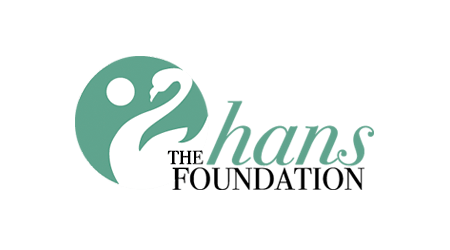Sustainable Development of Horticulture in Rural Mountains (SDHRM)
Since our inception in the year 2000, Sanjeevani is working unremittingly towards overall development of marginal community, in the Himalayan region. In our quest for sustainable socio-economic development of 1500 rural households of small and marginal farmers; Sanjeevani is implementing programme on Sustainable Development of Horticulture in Rural Mountains (SDHRM), with generous support of The Hans Foundation in Kangra District of Himachal Pradesh. The project aims at socio economic empowerment of small and marginal households, through promotion of sustainable horticulture practices, gender equality and collectivization.

The project aims at – Socio economic empowerment of small and marginal households through promotion of sustainable horticulture practices, gender equality and collectivization, thereby, contributing towards sustainable development goals: SDG-1- No Poverty, SDG-5 Gender Equality, SDG-8 Decent Work and economic growth, SDG12: Responsible production and consumption.
The project goal is complemented by 03 results:
- Awareness, capacity building & participation of small and marginal farmers on modern and scientific crop management practices
- Small and marginal farmers have enhanced production through modern and scientific agri-horticulture techniques
- Strengthening of market value chain through formation of farmer producer organization & convergence through government and financial linkages for small and marginal farmers
Following is the implementation strategy for the project implementation:
- Baseline: socio-economic status of the farmers will be recorder along with current agricultural practices and information on production and productivity.
- Awareness: about the very cause of low income in the focus area. Motivation will be done to form FIGs and implement improved management practices.
- Participation: Farmers will be organized through farmer interest groups to discuss common issues and formulate strategies to claim rights and entitlements.
- Capacity Building: will be done for small and marginal farmers on modern agricultural practices.
- Demonstration plots: will be established so that fellow farmers in the area will be able to learn modern agriculture practices.
- Government and financial linkages: will help the farmers to get benefitted from government programmes even after the project support. Financial linkages will help the farmers to expand their income generation activities.
- Market Linkages: The produce of small and marginal farmers will be linked to direct markets and consumers for enhanced income.
The programme is backed up with a strong sustainability plan, which will not only create ripple effect but also ensure long term sustainability:
Farmer interest groups (FIGs) will ensure local participation and regular interactions. The FIGs will form the very foundation of the programme implementation plan. Regular capacity building of FIG members on diverse modules will inculcate behavioral changes. Through FIGsmall and marginal farmers will emerge as leaders and will leave distinct footsteps for others to follow. The FIG will collectively work for the development of the village and the entire community, thereby improving the standards.
Technology and knowledge transfer: to small and marginal farmers through various capacity building programmes will enhance the knowledge of the farmers and will als0 introduce them to modern farming practices which will ensure future sustainability through enhanced yield (production and productivity), reduced input cost through better crop management and usage of ergonomic tool and equipment. With enhanced income and savings farmers will be able to expand their business and diversify income sources.
Resource Centre and demonstration units: Through the resource centre farmers will continue to receive updates on new technology and government schemes and programmes. Thus, even after the scope of the programme the resource centres will continue to provide its services. Demonstration units will provide excellent opportunities for community members with and without disabilities to learn and practice skills.
Para Agriculture Experts: are volunteers from the local villages who will be trained and developed as master trainers.These master trainers will be from within the community, therefore even after the programme community will receive their services. Master trainers may charge as per different trainings to ensure their sustainability after the programme support.
Formation of Farmer Producer Organization: will enhance the income generation capacity of the farmers. The FPOs will include small and marginal farmers in the business value chain. The FPO will provide a 360-degree support through backward and forward linkages. Regular capacity building and business planning will capacitate the FPO to establish itself as an independent business entity. Thus, even after the programme support the iFPOs will continue to provide its services to the community.
Government and financial linkages: The programme activities focus on long term linkages with government and financial institutions. Small and marginal farmers will be able to access financial services and will be linked to National Rural Livelihood Mission, National Agriculture Bank for Rural Development, other government programmes. The inclusive producer company will also initiate financial linkages for its members. Thus, even after the programme support the farmers will continue to receive benefits of existing/new government schemes (as they will be registered on government portals). Oncethe farmers have credit linkage they may avail financial services even after the tenure of the programme.